Members

Dr Giuseppe Di Caprio
Principal investigator
Dr. Giuseppe Di Caprio serves as an Associate Professor (Senior Lecturer) and a Chancellor’s Fellow at the Department of Biomedical Engineering, University of Strathclyde, and as a scientific advisor at the Center of System Biology – Massachusetts General Hospital. He completed his doctoral studies in Novel Technologies for Imaging through a collaborative program between the University of Naples Federico II and the Université Libre de Bruxelles. During this time, he focused on developing Phase Microscopy systems for cell analysis and tracking. Following his doctoral studies, he spent 11 years at Harvard University, initially at the Optofluidic Citofluorimetry Lab under the guidance of Dr. Ethan Schonbrun at the Rowland Institute. After three years, he transitioned to the Kirchhausen Lab as junior faculty at the Harvard Medical School – Boston Children’s hospital. His research interests encompass a wide range of topics including Microscopy, Quantitative Bioimage Analysis, Microfluidics, Organs-On-Chip, and Machine Learning. Google scholar
email: giuseppe.dicaprio@strath.ac.uk
Blue Sky: giudica.bsky.social
PhD Students
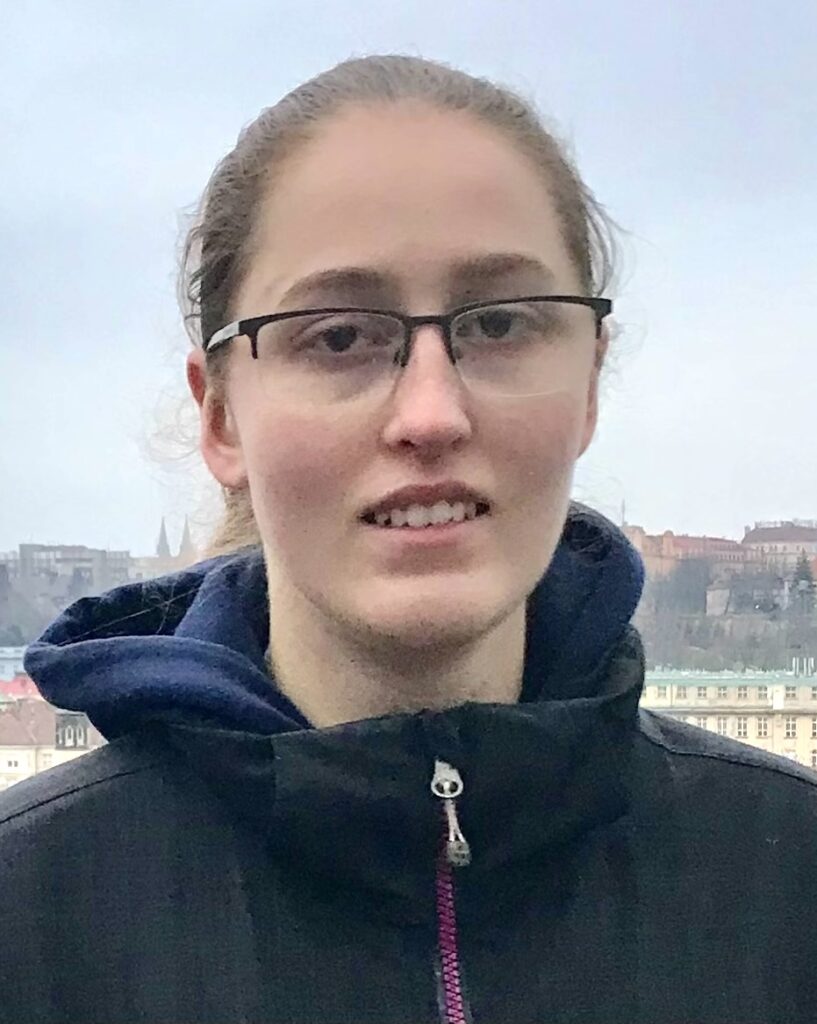
Amy Green
Amy joined the lab in October 2025 after completing her degree in Biomedical Engineering at Texas A&M University. Her PhD is part of a collaborative project between the University of Strathclyde and Politecnico di Milano (Polimi), focusing on developing advanced bio-manufacturing and smart microscopy approaches to study immune cell behaviour in engineered 3D environments.
email: amy.green@strath.ac.uk
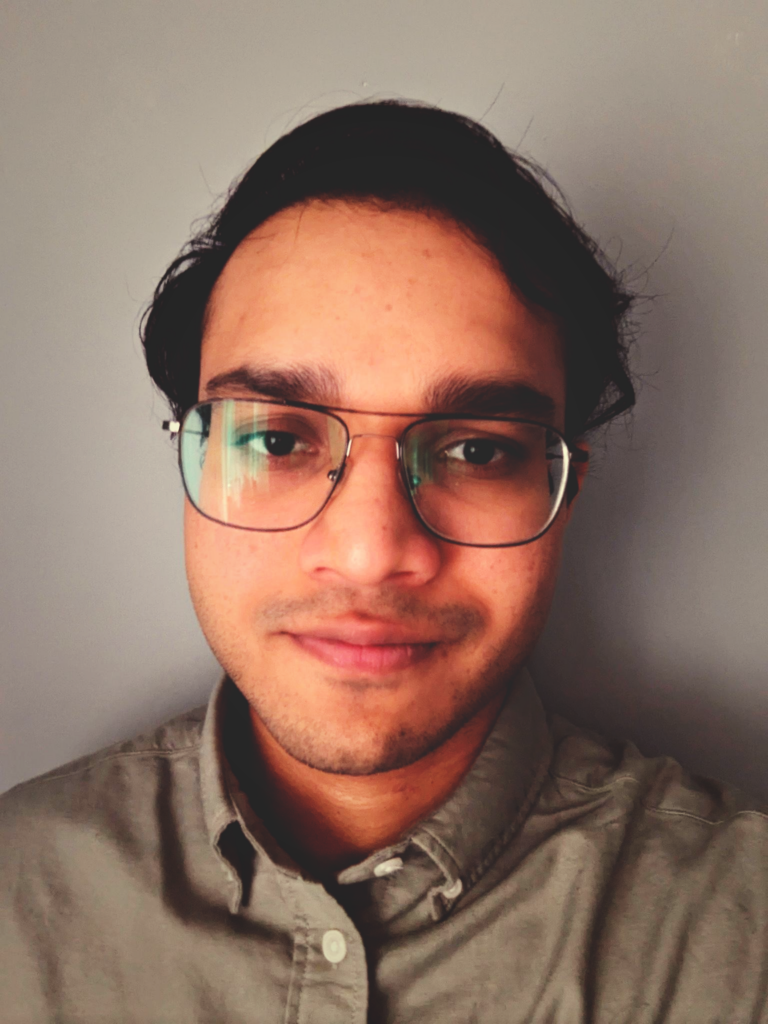
Shan Jacob
Shan joined the lab in March 2025. He holds a Master of Artificial Intelligence from University of East London, completed in 2023. His PhD research focuses on developing an advanced device that enables rapid, real-time analysis of whole blood cells in flow using AI-based image analysis. The device will classify blood cell types and assess red blood cell deformability, offering a powerful tool for improved diagnosis and monitoring of health conditions.
email: shan.jacob@strath.ac.uk
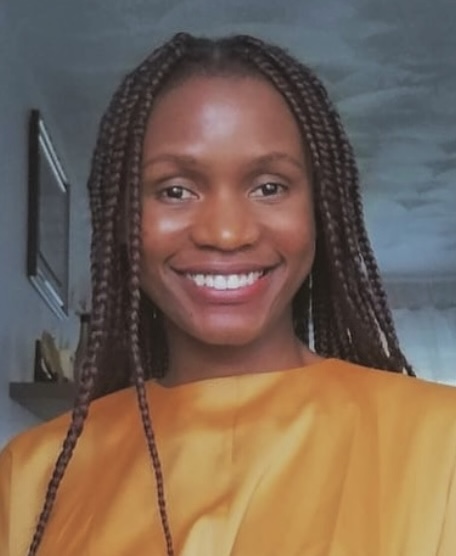
Swabra Farzia
Swabra joined the lab in October 2024. She is a recent MEng Biomedical Engineering graduate with a Merit distinction. Her project will focus on identifying the most potent cardioactive secretome fractions from human amniotic stem cells and determining their mechanisms of action on myocardial disease using advanced optical imaging, AI integration, and bioprinted cardiovascular organoids, in collaboration with KU Leuven. Outside of work, she enjoy hiking, cooking new recipes, and staying active through running.
email: swabra.farzia@strath.ac.uk
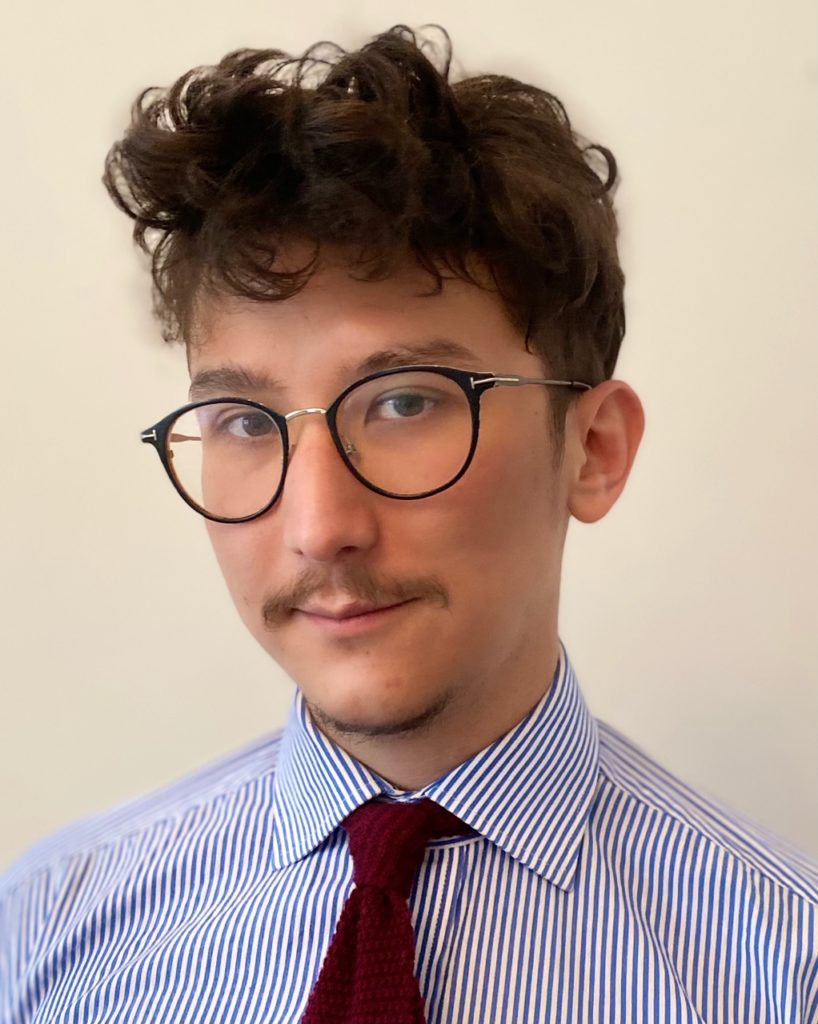
Philip Graemer
Philip joined the lab in April 2024. He holds a BSc in Psychology with First Class Honours from the University of West of Scotland, awarded in 2020, and an MSc in Brain Sciences with Merit from the University of Glasgow, completed in 2021. Currently, he is involved in a project focusing on AI-powered Smart Microscopy for Stem-Cell Engineering. Outside of work, Philip enjoys hiking, hill climbing, and wild camping.
email: philip.graemer@strath.ac.uk
BEng, Meng and MSc Students
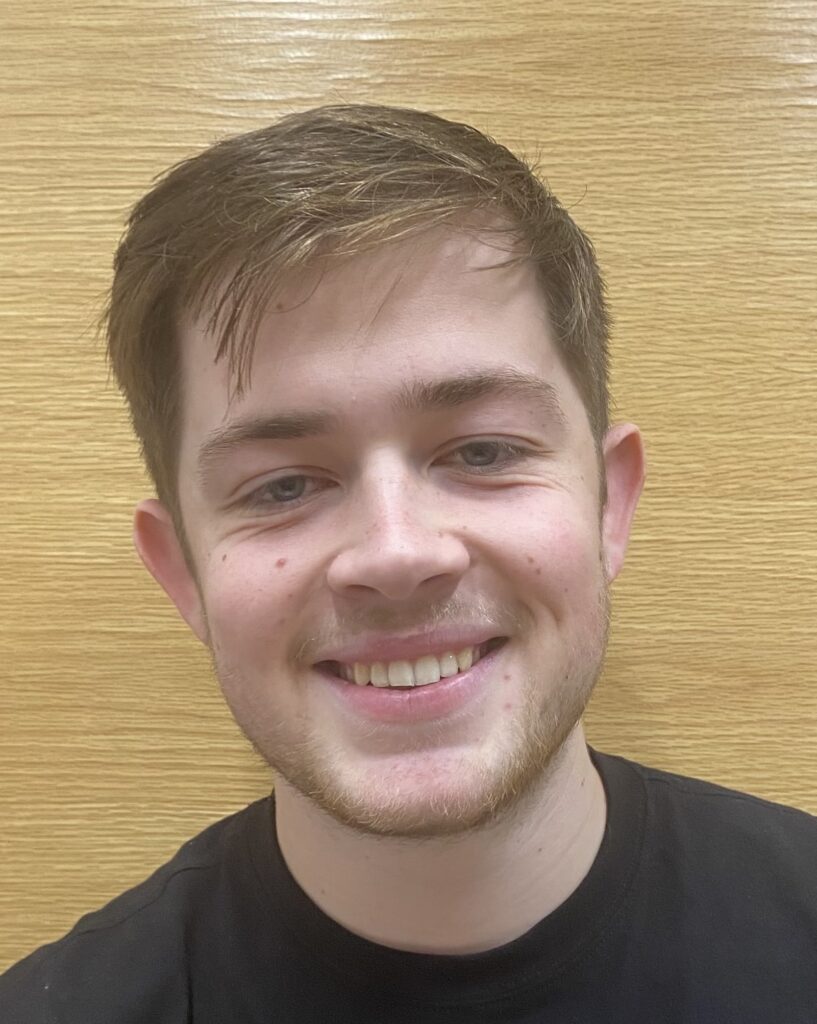
Sam Lindsay
MEng Student
Sam joined the lab for his 4th year project in September 2025. The project will focus on Explainability in AI for Microscopy, exploring how interpretable AI methods can help us understand and trust the decisions made by models in biomedical imaging.
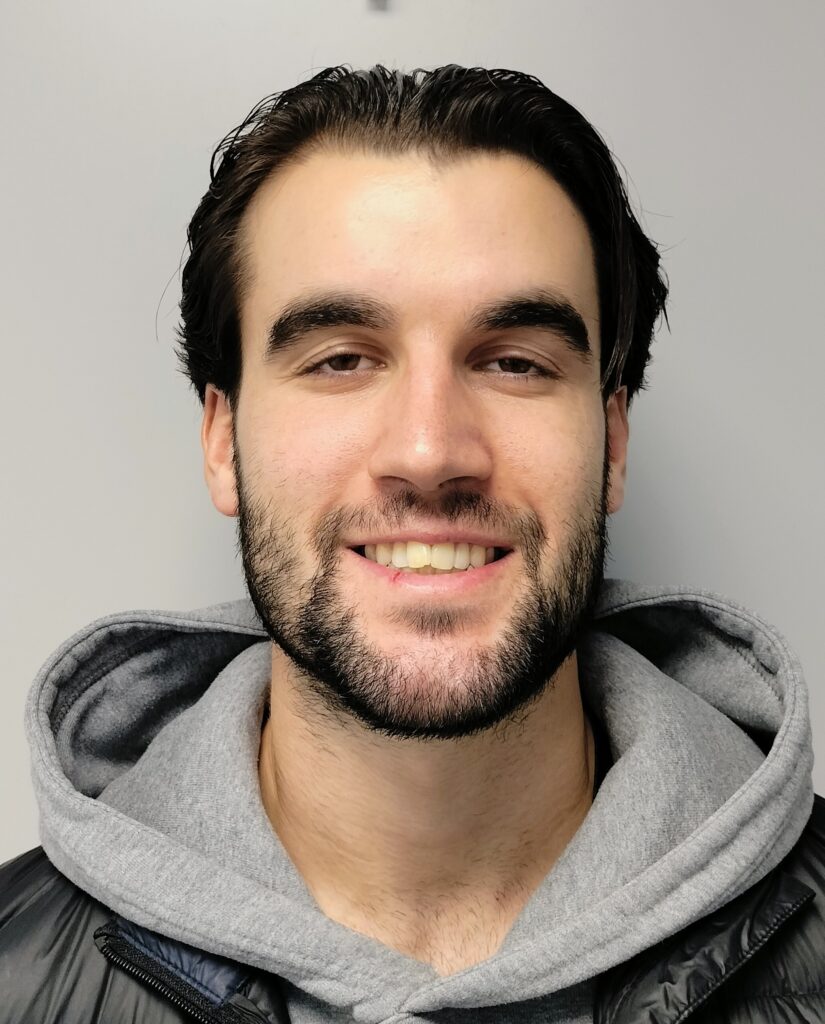
Louis Blake
MEng Student
Louis joined the lab for his 4th year project in September 2025. This project explores using Meta’s SAM for cell image segmentation, including prompt optimization, fine-tuning with custom masks, and benchmarking against specialized models.
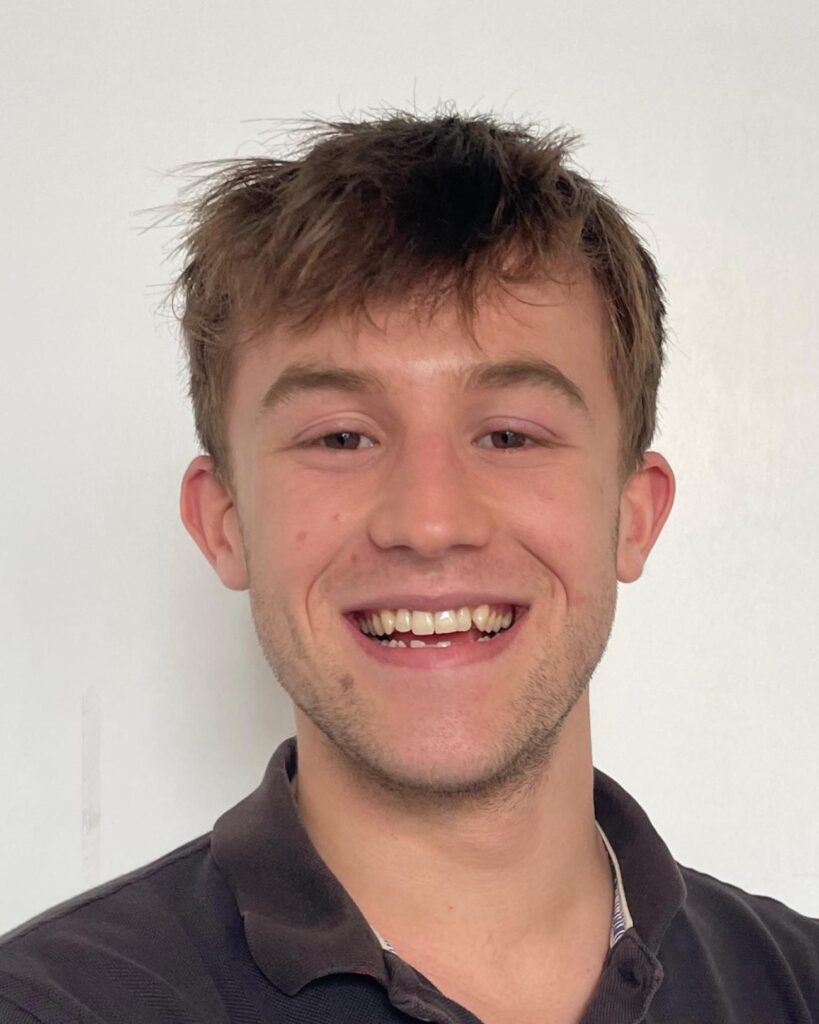
Euan Seaman
MEng Student
Euan joined the lab for his 4th year project in September 2025. This project focuses on improving phase contrast and DIC microscopy images by comparing classical background subtraction methods with AI-based approaches
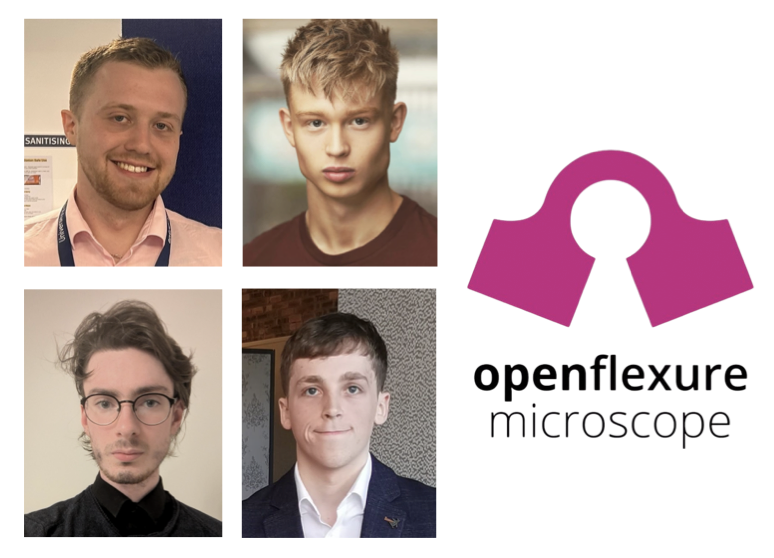
OpenFlexure Microscope – Industrial Partnership Project
We’re excited to welcome Grant McClure, John Selkirk, Ben Polwart and Robert Barry, who are undertaking their 5th-year industrial partnership project on the OpenFlexure Microscope, an open-source, 3D-printed laboratory microscope designed to make high-quality microscopy accessible worldwide.
Their work focuses on developing a robust, cleanable, and clinically compliant casing through innovative rapid prototyping methods, contributing to a real-world open science and biomedical engineering initiative.
Recent Alumni
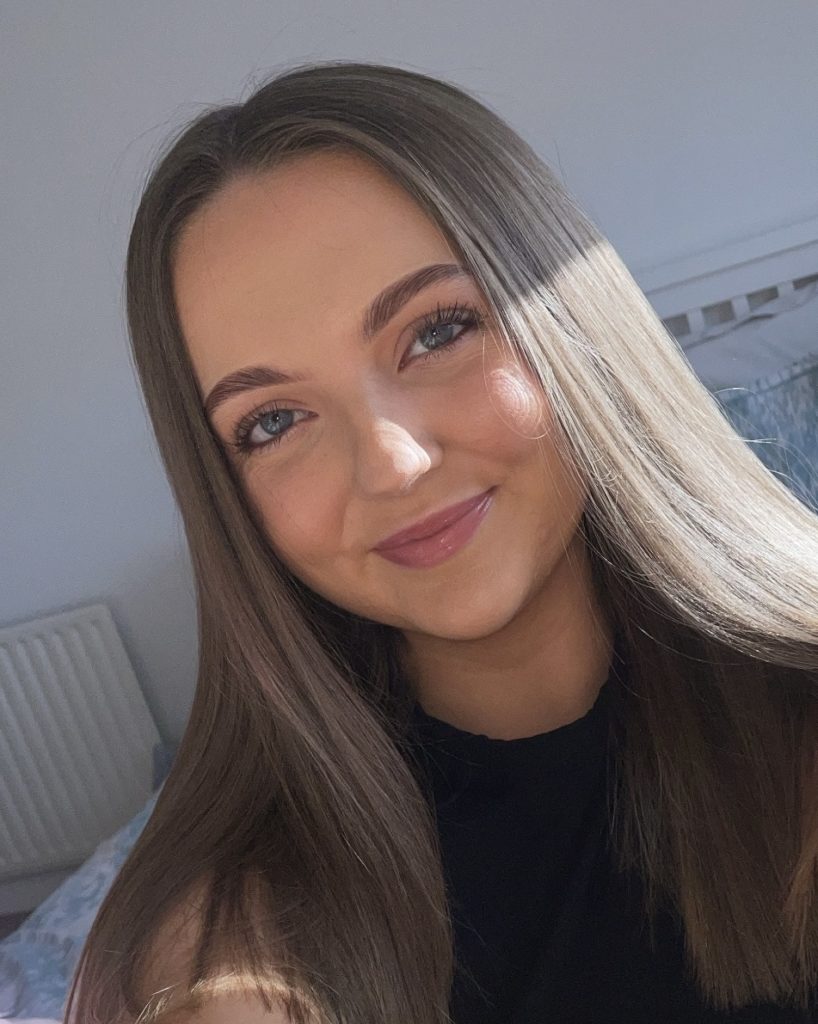
Rachel Elder
Rachel joined the lab for her 4th year project in September 2024. The project aims to develop AI-assisted 3D image processing methods to enhance clinical CT imaging by integrating Optical Projection Tomography (OPT) principles, improving resolution and contrast
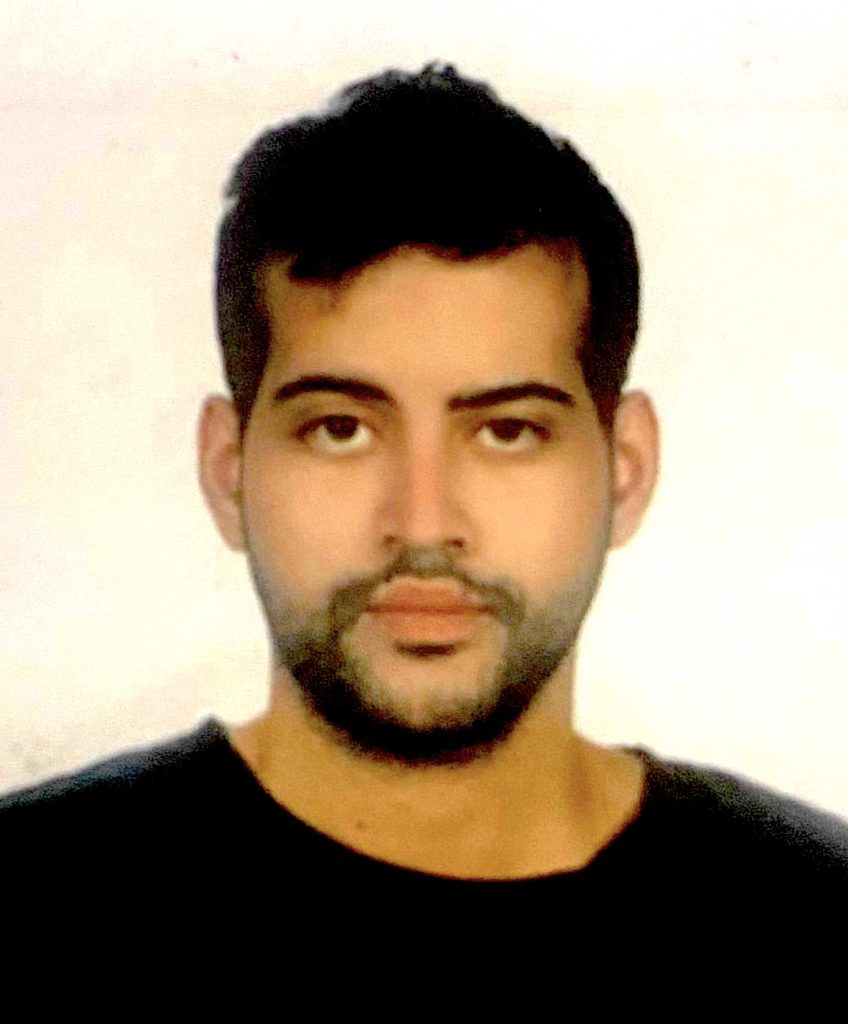
Mohamed Aziz Safi
Aziz joined the lab for his master thesis in March 2024. Aziz will analyse existing videos of whole blood cells in flow, and he will develop AI-based algorithms for single cell segmentation and classification.

Stuart Fisher
Stuart joined the lab for his master thesis in March 2024. He will work on the design and fabrication of new microfluidic devices for whole blood characterization.